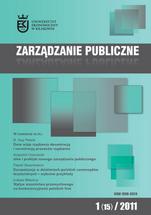The trajectories of socio-economic development in post-communist economies
Keywords:
institutions, economic growth, socio-economic models, transition economiesAbstract
The aim of this paper is to find a relationship between institutions and economic development in the former communist economies in Central Eastern Europe and in the former Soviet Republics. Following the literature concerning the varieties of capitalism, the author classifies these economies according to their socio-economic models and tests whether the model has an impact on economic development. The author describes five socio-economic models among the former communist economies: the competitive capitalist model, the corporatist model, the dirigiste model, the hybrid model, and the state capitalist model. Using a factor analysis, the author determines that the characteristics of a competitive capitalist model do not significantly impact economic growth. However, economic growth and human development in particular are stimulated by high levels of public expenditure in health and education, and democratic political rights and civil liberties. These two variables are characteristic of a corporative capitalist type of socio-economic model.



